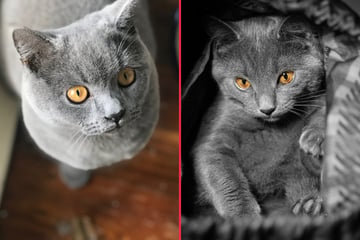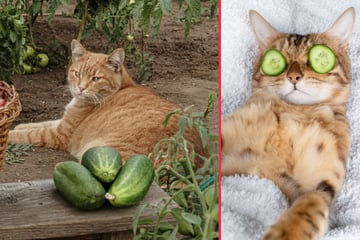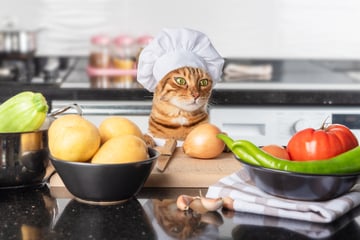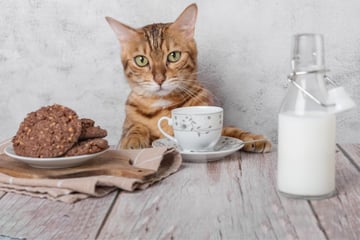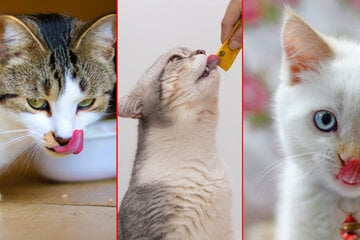Can cats eat cheese?
If you have ever noticed your cat creeping around the pantry, it's likely because it's on the hunt. Not for a rat, mind you, but for a tasty piece of cheese. But can cats even eat cheese and what are the risks?
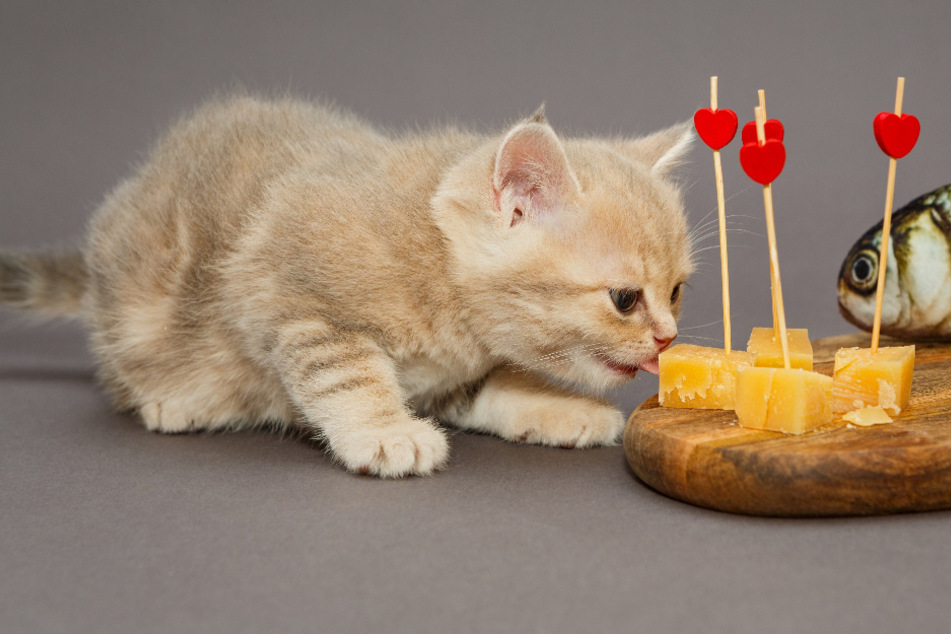
Cats love cheese, in all forms. They love it melted, they love it blue, they love it squishy and stinky, and they love it most when it's plentiful.
In fact, if you've ever had a cheese platter in proximity to a feline fellow, you would have probably noticed just how unbelievably excited cats get at the prospect of some delicious fromage.
But should you let your feline friend indulge in a tasty snack?
Stick with TAG24 and let us guide you through the world of cats and cheese.
Can cats eat cheese, what cheese can cats eat, and how much is okay? We've got all the answers!
Can cats have cheese?
While cheese is not poisonous for cats, and won't do too much damage in small quantities, it is not recommended for cat consumption. If our feline friends eat too much cheese they will experience nasty gastrointestinal issues, such as diarrhea and increased flatulence. This is on account of the fact that cats are lactose intolerant.
In much the same way that a cat shouldn't drink milk, cheese is not life-threatening or dangerous for cats, but will cause serious and unpleasant symptoms that your kitty will not thank you for. As such, while it is okay to feed your cat a small piece of cheese every now and again, it should always be in moderation and should never be a daily occurrence.
Different types of cheese are different too, mainly because they contain different amounts of lactose, a variety of unhealthy fats that can spell trouble for your cat's future health, and varying salt contents. Your kitty should avoid anything high in lactose and salt especially, but should also generally steer clear of anything too fattening – after all, it's rather hard to get your cat to exercise off those calories.
The simple fact of the matter is that cats should never be fed dairy products on account of not only their lactose intolerance, but also the high amount of fat found within such foods. With that in mind, though, it's not immediately dangerous and not something to worry about if it happens by accident.
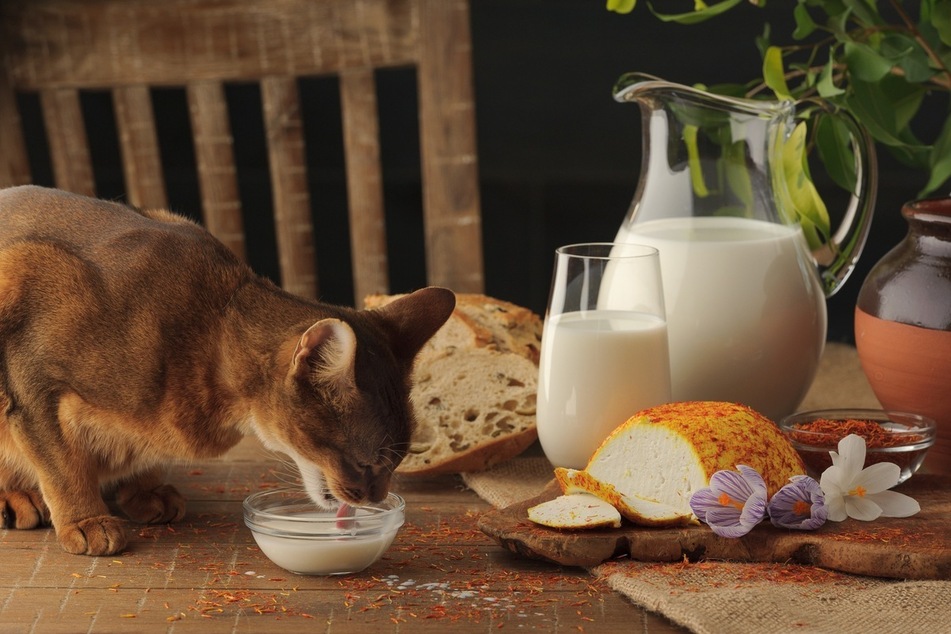
What cheeses can cats eat?
Cheeses that are lower in lactose, usually those of a harder variety, are generally okay for cats to eat. Of course, this is all in moderation, a cat should never eat more than one or two tiny chunks of cheese at a time, and it should never be made a daily or regular thing.
A few cheeses that are okay for cat consumption include:
- Cheddar
- Parmesan
- Swiss cheese
- Gouda
- Edam
- Cottage cheese made from sour milk
While nowadays there are also a wide range of appropriately labeled lactose-free cheeses, you should simply be avoiding them when looking to feed your cat. You need to feed your cat an appropriate and healthy diet that's high in protein, low in fat, and which has almost no carbohydrates.
In terms of your cat's diet, stick entirely to cat food and biscuits. Go by your veterinarian's advice and stick to it. While it is okay to give a treat to your cat here and there, try to only give your cat specifically designed cat snacks. If you really want to feed it something from the table, like some cheese or meat, make it a very small amount and as bland as possible (so no seasoning on the meat).
If you're really set on feeding your cat some kind of dairy, make sure that the lactose quantity found within is less than one percent. Still, just don't do it, there's no point and it'll only cause hardship in the future.
What cheese can cats not eat?
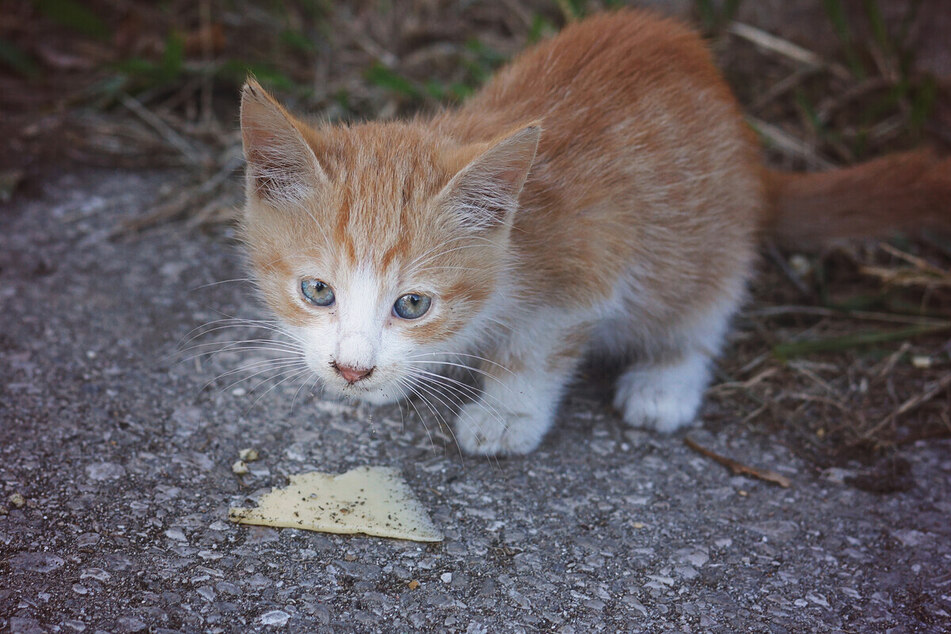
While cats can eat some cheeses without too much concern, assuming that they only eat a little, other cheeses pose more of a problem. Cheese that contains raw milk can contain pathogens such as salmonella and listeria, which can be dangerous, and are thus utterly prohibited from cat consumption.
Additionally, going off of the last section's discussion of lactose intolerance, any cheese that is high in lactose is particularly dangerous. Again, a small amount of brie isn't going to kill your cat, but it will cause it some pretty serious stomach problems. Stick to a regular cat diet!
Cat owners should avoid these cheeses like the plague:
- Cream cheese
- Any kind of processed cheese
- Mozzarella
- Brie
- Camembert
- Blue cheese
Just stick with what you know and give your cat what it's supposed to be eating. There's genuinely no reason to experiment when it comes to cat diet. Just give it what it needs and leave it at that.
What about cheese puffs? Can cats eat cheese puffs?
No, cats absolutely can't eat cheese puffs! They are full of nasty chemicals that, quite frankly, aren't even good for you (though, they are admittedly delicious). Junk food is just a general no-go for cats, whether it be something natural like a nice slice of cheddar or something unnatural like some cheese puffs. Pay attention to your cat's diet and health - it's important.
Be careful and moderate with your cat's cheese intake. Sure, it's adorable to watch your cat chow down on a nice piece of mozzarella, but we can assure you that if you don't show a little caution, you won't be able to Camembert the results.
Cover photo: 123RF/Okssi68
